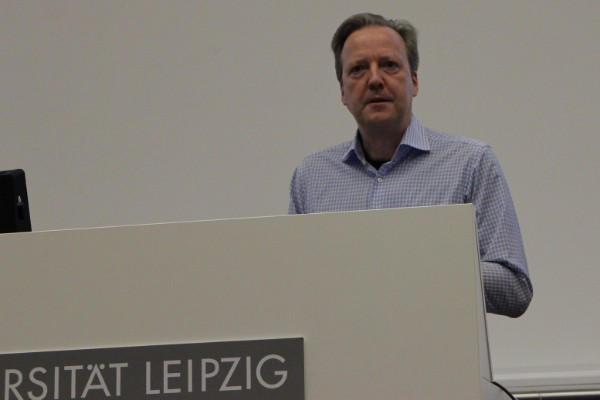THE STATE
On how to create fiscal space through public enterprises
How can the German state close the financing gap in climate, digitalisation and education while complying with the debt brake? Tom Krebs suggests possible financial transactions in the federal budget, including expanding the equity base of public enterprises.
BY
MAREN BUCHHOLTZPUBLISHED
21. OCTOBER 2021READING TIME
4 MIN
Prof. Dr Tom Krebs, Research Director at the Forum New Economy and Professor of Macroeconomics and Economic Policy at the University of Mannheim, opened the 14th Workshop on the Yearbook for Public Finances (Jahrbuch für öffentliche Finanzen) at the University of Leipzig on 8 October 2021 with a lecture on “Climate Protection, Investments and the Debt Brake”.
You can find the presentation slides here.
The bi-annual Yearbook of Public Finance publishes both expert contributions on fiscal policy and the Länder financial reports. The past workshop entitled “Between political reorientation and fiscal crisis management: Transformation versus Coalitional Reconciliation of Interests?” was hosted by the Chair of Finance of Prof. Dr. Thomas Lenk at the Institute of Public Finance and Public Management at the University of Leipzig.
Short summary
Climate action is expected to require additional public investments in the order of 170 billion euros at the municipal level and 90 billion euros at the federal level by 2030 (Krebs and Steitz, 2021). Added to this are future investments in digitalisation and education.
As the exemption rule for the debt brake expires next year, Tom Krebs proposes to use financial transactions in the federal budget to create financial room for manoeuvre for these urgently needed investments in the period from 2023 to 2030. If neither taxes are to be raised nor the debt brake adjusted through a constitutional amendment, the expansion of the equity base of public enterprises is an option. For example, the federal government could expand its investments in the infrastructure sector by founding a hydrogen company, by increasing the equity of Deutsche Bahn or by acquiring a majority stake in TenneT. In addition, new federal companies could support municipal investments in certain areas, such as housing and transport.
Private investments for climate protection and digitisation should be promoted, among other things, through low-interest loans and improved depreciation conditions. The total estimated funding requirement here is around 100 billion euros, of which existing funding programmes of the German government and the EU already cover about half. The other half could be obtained, among other things, from the gradual dismantling of climate-damaging subsidies.
Furthermore, methodological improvements in the forecasting of the output potential and tax revenue that better reflect the influence of economic crises (Heimberger and Truger, 2020) and structural reforms (Sigl-Glöckner et al., 2021) could create additional fiscal space.

